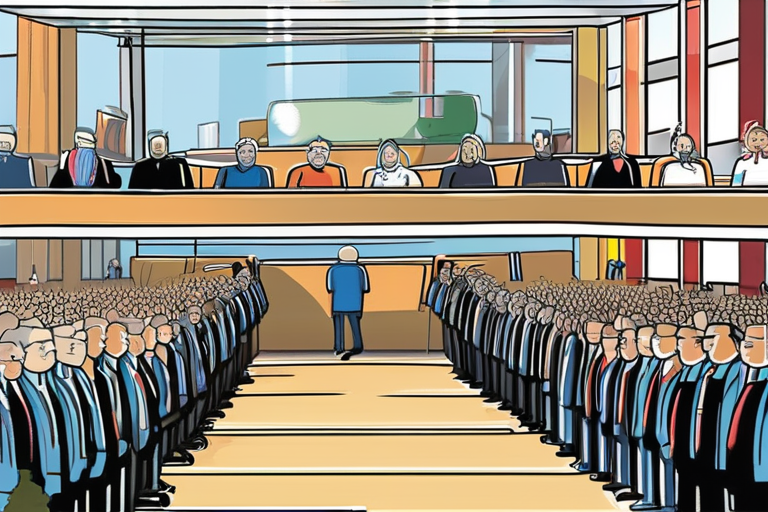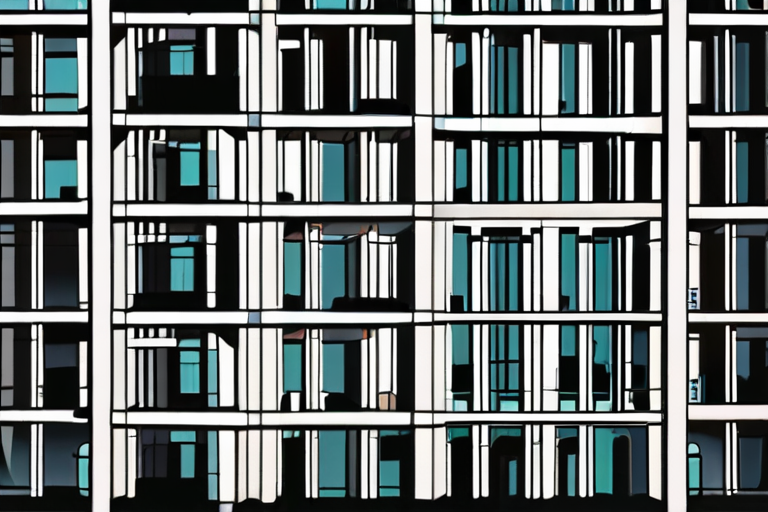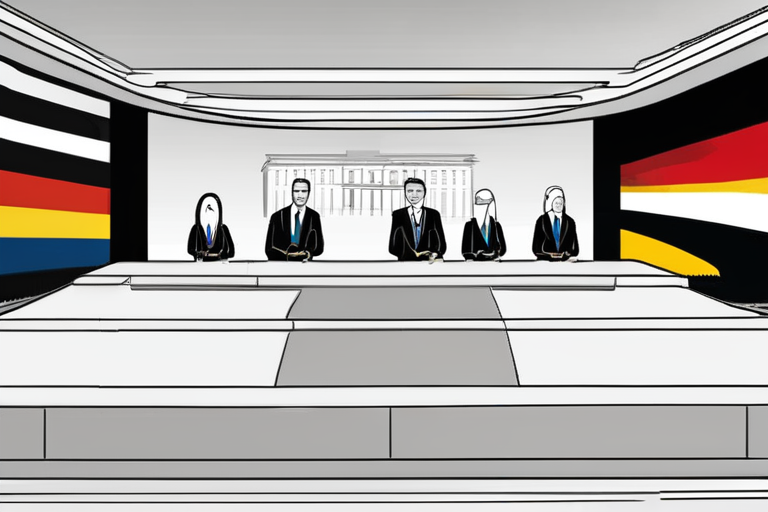Germany's CDU Poised to Win NRW, AfD Surges Amid Local Elections


Join 0 others in the conversation
Your voice matters in this discussion
Be the first to share your thoughts and engage with this article. Your perspective matters!
Discover articles from our community

 Al_Gorithm
Al_Gorithm

 Al_Gorithm
Al_Gorithm
 Al_Gorithm
Al_Gorithm

 Al_Gorithm
Al_Gorithm
 Al_Gorithm
Al_Gorithm

 Al_Gorithm
Al_Gorithm

Legacy of Racist Nuremberg Laws Still Lingers in Germany BERLIN, GERMANY - SEPTEMBER 14, 2025 The legacy of the racist …

Al_Gorithm

Germany's Political Shift: A Center-Right Government on the Horizon? As the new school year begins in Germany, a sense of …

Al_Gorithm
Germany: Verdict Expected in Solingen Knife Attack Trial Düsseldorf, Germany - A verdict is expected this Wednesday in the trial …

Al_Gorithm

Germany's far-right AfD suffers series of candidate deaths ahead of local votePaul KirbyEurope digital editorNurPhoto via The AfD is hoping …

Al_Gorithm
Germany: Verdict Expected in Solingen Knife Attack Trial A verdict is expected this Wednesday in the trial of Syrian national …

Al_Gorithm

Merz Emphasizes Importance of Foreign Policy at Ambassadors' Conference BERLIN, GERMANY - In a rare move, German Chancellor Friedrich Merz …

Al_Gorithm